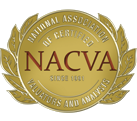Trust & Estate Services
Whatever your financial achievement in life, it goes without saying that it takes work to earn money. With the proper planning and management you can ensure that your life’s efforts live on after you. Working with a certified public accountant allows you to comply with relevant tax regulations while also providing for your family’s interests.
Why Trust and Estate Planning Matters
We want to dispel the myth that you need to be extremely wealthy to think about trust and estate planning–if you have any assets at all, you have an estate. Regardless of the level of your finances, you’ll want to use your assets to their best advantage for yourself and your loved ones. That’s true whether you’re in your prime or in your golden years. You can never start too early–it’s always a good time to plan for the future.
This is especially true because if you don’t have official documentation dividing your assets, the state will more or less write one for you. It goes without saying that their decisions won’t match your own.
Trust and estate planning really takes center stage when dependents–spouse, children, etc.–or closely held businesses are involved. Thorough understanding of the laws surrounding these topics means that even in the event of a tragedy, your loved ones will be cared for during their time of grief and loss and shielded from predatory individuals.
Trust and estate planning are ultimately about taking control of your assets and ensuring that your wishes are carried out. That can only happen with detailed planning.
Trust vs Estate Planning
Both trust and estate planning involve leaving a financial legacy that can be put to paper long before a need arises. However, while trusts can be created and managed in life, estates only become operative in death. You can plan for what eventually happens, but you may want to entrust the responsibility to someone else. An estate plan disburses your assets once, while a trust can distribute assets over a longer time period. Trusts could be just one component of a comprehensive estate plan.
For large estates, a plan is essential to ensure that potential taxes can be intelligently managed and even minimized, to the family’s benefit. To that end, a responsible executor or trustee can be put in place to help administer assets.
The estate planning process can be broken into several predictable steps:
- Inventory your tangible and intangible assets (i.e. homes, cars, collectibles, valuables, bank accounts, investment portfolios, health savings accounts, insurance policies, cryptocurrency, retirement plans)
- Determine your family’s needs in general, and how each member will benefit specifically
- Name desired guardian(s) for any minor children
- Outline optional directives establishing medical care and power of attorney
Once you’ve done your estate planning, a trust is a separate legal entity you form in order to transfer assets for management. Trust planning can entail all the above steps involved in estate planning, however there are unique tax-related considerations to take into account when planning a trust. You will need to appoint a trustee to manage and oversee your assets. They will be responsible for carrying out your wishes, as outlined in the trust document. These can range from funerary instructions to making charitable donations.
Trusts generally fall into one of two categories: 1) revocable living trusts, or 2) irrevocable living trusts. As the names imply, assets in revocable trusts can be pulled back by the trust’s creator during their lifetime. In irrevocable trusts, the assets are turned over to the trustee. Both of these categories bring special tax considerations with them, and it’s best to call on a trusted certified public accountant for advice.
In Ohio, several types of trusts are common, including:
- Accumulation Trusts
- Bypass Trusts
- Living Trusts
- Testamentary Trusts
Your local accountant can help to explain what each type entails and how it will affect your overall estate planning considerations.
Rely on Your Trusted, Local Accountants
Every estate plan is different, but the goal is the same: take control of your hard-earned assets and care for your loved ones. Whatever size estate you need to plan for, NMS Certified Public Accountants is here to help. With an Ohio CPA on your advisory team, you can be sure that you’re taking tax implications into account when planning for your estate.
This isn’t an easy topic to discuss–it can stir up emotions we’d rather suppress. But with a little upfront expertise and guidance and a healthy dose of kindness and compassion, we can make sure that your wishes are carried out. Make things easy on yourself and your loved ones–reach out to our team and get started on your estate and trust planning today.






